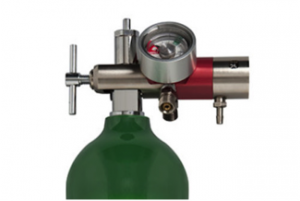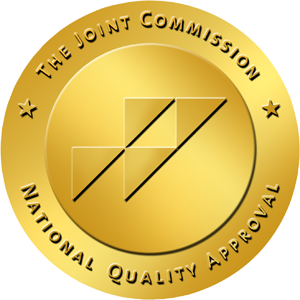Managing an Acute or Chronic Lung Disease

People living with lung disease, particularly asthma and chronic obstructive pulmonary disease (COPD) can and should get regular exercise. However, the thought of shortness of breath can prevent many from increasing physical activity. If you or a loved one has a lung disease, it is important to work with your healthcare team to make a fitness plan that works for you.
The body has a natural defense system to protect the lungs from dirt and germs, but prioritizing your lung health reduces the risk of lung disease and symptoms if you have been already diagnosed. Here are some ways to keep your lungs healthy:
- Do not smoke. Cigarette smoking is the major cause of COPD and lung cancer. Cigarette smoke can narrow the air passages, cause chronic inflammation and make breathing more difficult.
- Avoid exposure to indoor pollutants. Chemicals in the home and workplace, radon, and secondhand smoke all can cause or worsen lung disease. Keep your car and home smoke free and test your home for radon.
- Minimize exposure to outdoor air pollution. The air quality outside can vary daily and can sometimes be unhealthy to breathe.
- Prevent infection. Practicing good hand-washing habits and oral hygiene can help prevent the spread of respiratory infection. Get a flu vaccine every year and talk to your healthcare provider about whether a pneumonia vaccine is right for you.
- Get regular check-ups. Regular check-ups help prevent disease, such as lung disease, which sometimes go undetected until it is serious.
Respiratory Therapy
Respiratory therapy is always practiced under medical direction. It assesses, develops and implements treatment of patients with both acute and chronic lung disease. In addition to treatment, respiratory therapists monitor equipment related to therapy, administer aerosol-based medications, consult with physicians and members of the medical team, educate patients and do much more.
Along with having a broad knowledge of the cardiopulmonary system, respiratory therapists operate machines and devices used to administer respiratory care treatments. They also monitor patients on ventilators and artificial airway devices and assess the blood-oxygen level of patients.
Exercise
Regular exercise makes your muscles stronger and also strengthens your lungs and heart. As your physical fitness improves, you can better perform tasks of daily living. Always consult a doctor or other healthcare provider before you start an exercise program. If you have a change in any medications, talk to your doctor before continuing your exercise routine.
Adults should get 30 minutes of moderate physical activity per day such as walking, recreational bicycling, gardening and housecleaning. Stretching gently before and after workout is also beneficial. Breathing exercises can strengthen your diaphragm and train your body to breathe more deeply and more effectively. If you want to try a new move, begin with a pulmonary rehab program.
If you use oxygen, consult with your doctor or healthcare provider about exercises you can do with your oxygen equipment that won’t be a hazard or hassle. Balance exercise with rest, and if you have not exercised for several days, gradually return to your regular routine. Here are additional tips about exercising if you have lung disease or COPD:
- Wait at least an hour and a half after eating before beginning to exercise.
- Consider any fluid restrictions you may have when you drink fluids while exercising.
- Avoid hot or cold showers after exercising.
Respiratory Therapy Equipment
Carmichael’s provides a wide variety of home respiratory therapy equipment, supplies and services to patients with acute and chronic pulmonary diseases. Carmichael’s representatives coordinate the prescribed therapy with the patient’s physician and train the patient and caregiver in the correct usage of the equipment. Respiratory therapy products and services include, but are not limited to, the following:
- Oxygen concentrators
- Portable oxygen cylinders
- Nebulizers and related inhalation drugs
- Continuous positive airway pressure (CPAP) and bilevel positive airway pressure (BiPAP) devices
Contact Carmichael’s to speak to a representative about any respiratory therapy equipment products, supplies and services you need or to request additional information.




 Accredited/Certified by The Joint Commission
Accredited/Certified by The Joint Commission